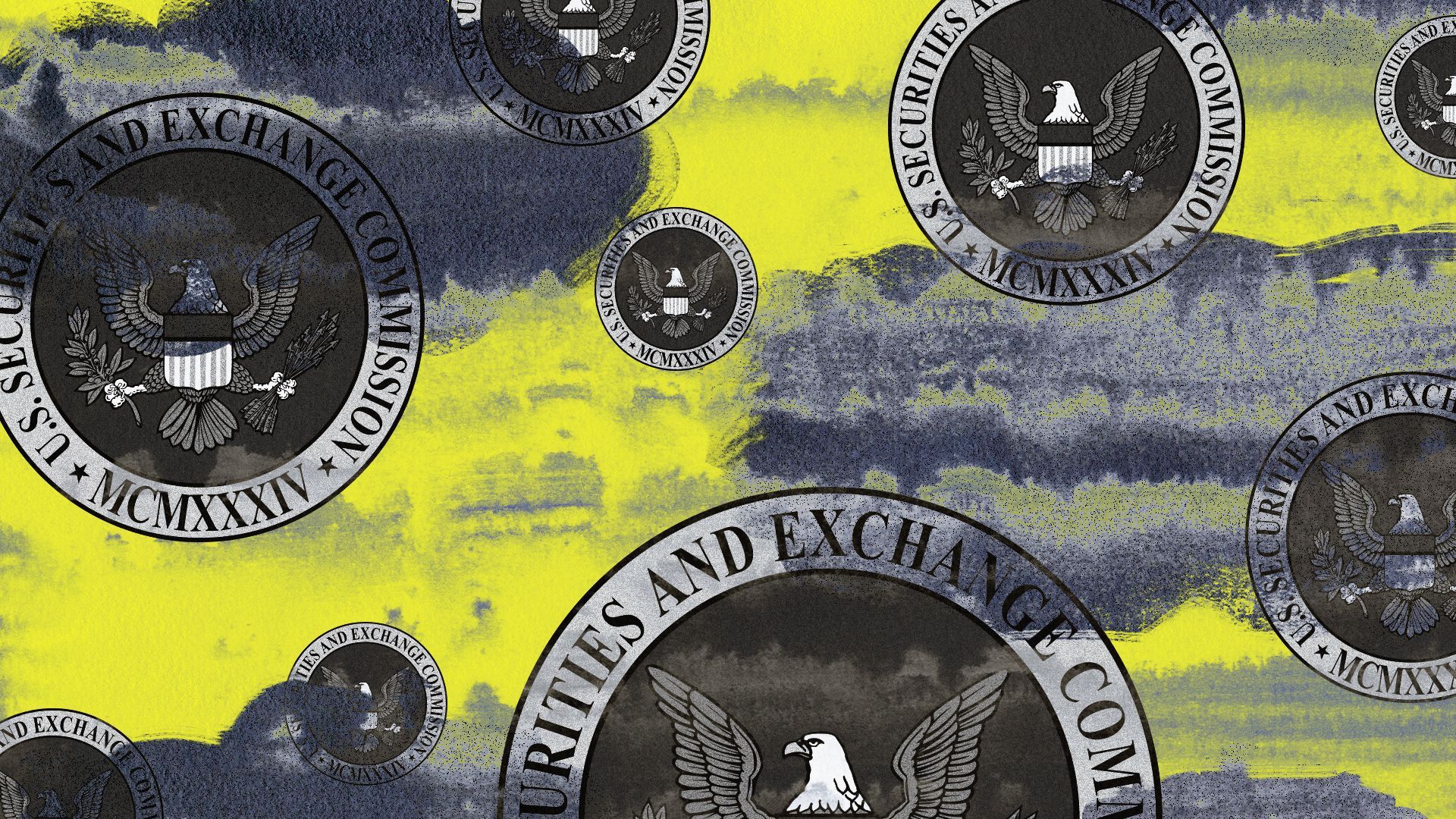Making sense of the SEC's climate move

- Ben Geman, author ofAxios Generate

Illustration: Shoshana Gordon/Axios
The Securities and Exchange Commission's freshly-minted climate disclosure rules unveiled on Wednesday are a game changer in more ways than one.
Why it matters: They create a major new mandate for public companies to reveal emissions and ways that climate change presents business risks.
State of play: The next fight begins now. GOP attorneys general from 10 states immediately filed suit.
- It's an early test of a 2022 Supreme Court ruling that agencies need clear congressional blessing to regulate in areas of major economic and political significance.
- And our Axios Pro: Energy Policy colleagues report that Capitol Hill Republicans will try to kill it using the Congressional Review Act.
Yes, but: The SEC backed off somewhat. It jettisoned plans to force disclosure of CO2 emissions from firms' supply chains and end-uses of their products.
- These "Scope 3" emissions are often the largest linked to a given company.
- Another change from the 2022 draft: emissions only must be reported if companies decide they're "material" to investor decisions, and it exempts many smaller firms too.
Inside the room: Even weakened rules stitch climate far more deeply into the fabric of U.S. financial oversight, and they offer investors fresh insight into how companies assess risks.
- ING analyst Coco Zhang called it a "historical moment," adding it will "greatly enhance the transparency and comparability of climate data across companies in the U.S."
Zoom out: Disclosure is a hot topic. It adds to a growing matrix of mandates — notably EU regulations and a California law (which is also being litigated) — and voluntary frameworks.
- "Companies have real work to do to understand their various reporting mandates, while navigating dual challenges of continued policy uncertainty and heightened compliance risks," KPMG's Maura Hodge said in a statement.
- But compliance with some rules may help meet the new mandates, she notes.
Context: It's a Rorschach test. SEC Chairman Gary Gensler and other Democratic commissioners say it's only about giving investors needed info.
- But GOP critics see mission creep. They call it a bank-shot attempt to steer capital from fossil fuels and pressure companies to cut emissions.